An African Nation in Poverty Provides Important Perspectives on Public Health
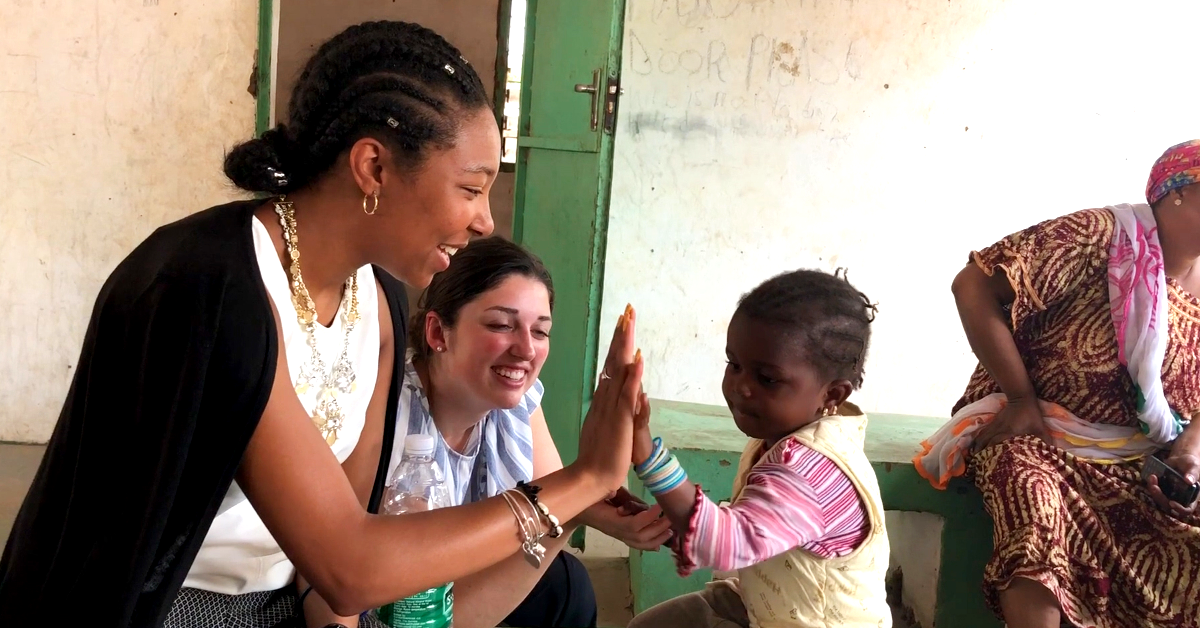
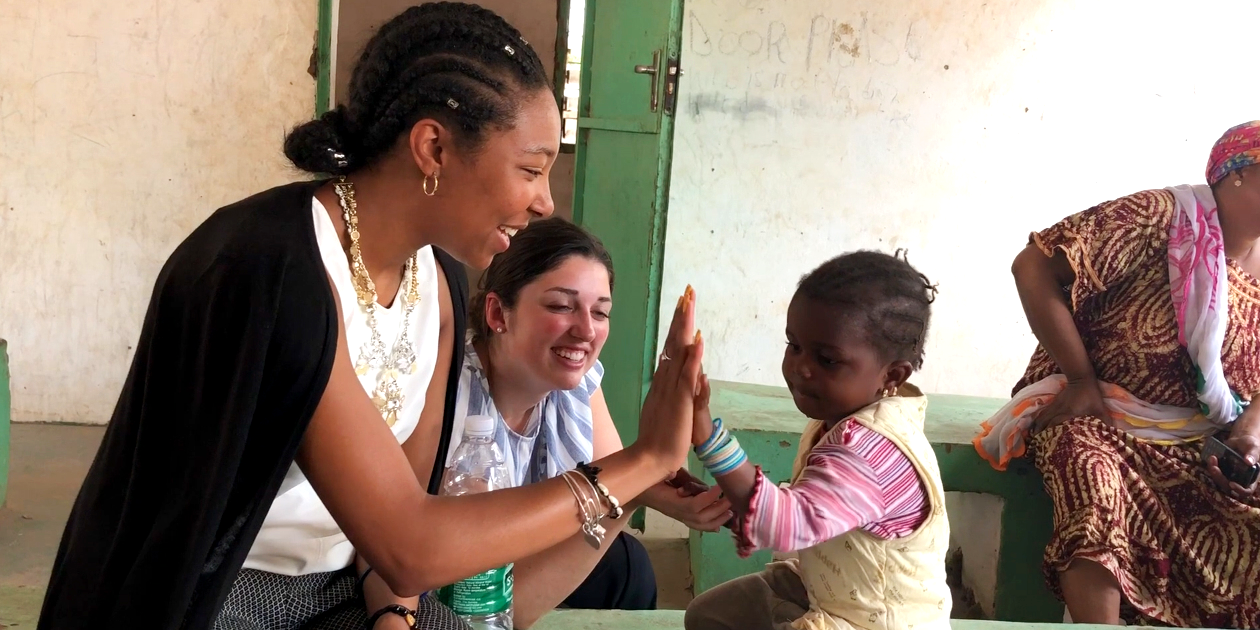
James M. Loy, Miami University
The hospital is technically a hospital. Though not in the same way people from more developed countries might see one.
Here, at the Bundung Maternal and Child Health Hospital, there are not enough doctors or supplies to go around. Modern equipment is nearly non-existent. Medical records are disordered and remain openly about. There is little free space. No extra beds. And even less privacy.
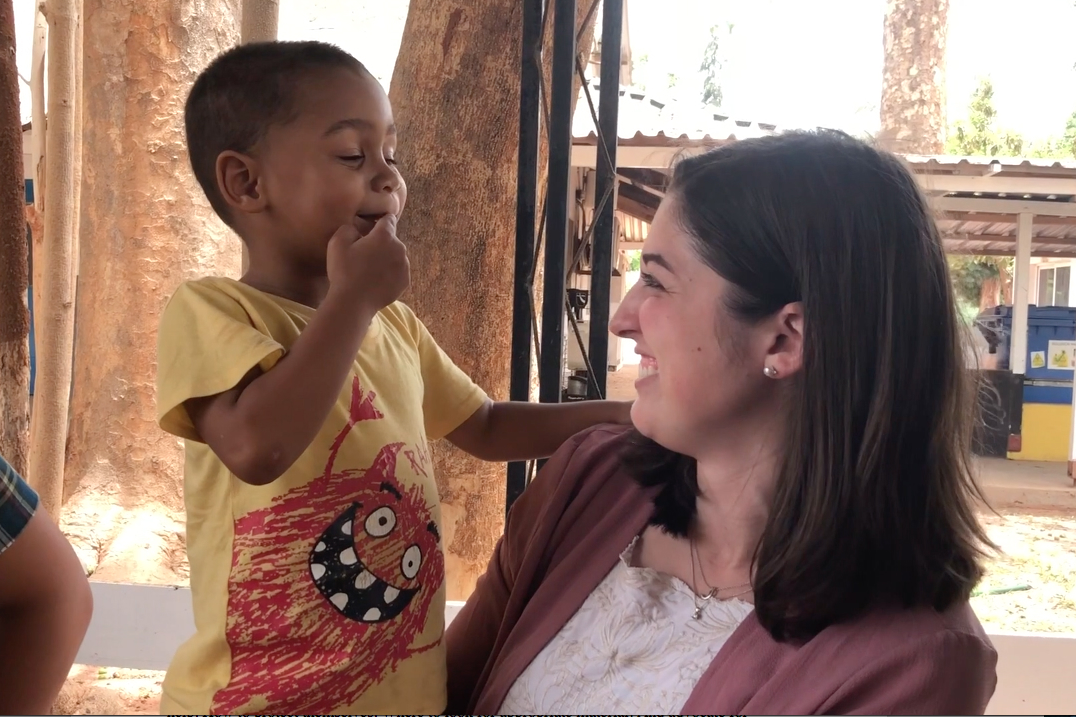 Many hospitals here in The Gambia are faced with similar conditions. Most could use more of almost everything. Everything except, perhaps, more care and compassion. Which are among the few resources this small West African nation does have in abundance.
Many hospitals here in The Gambia are faced with similar conditions. Most could use more of almost everything. Everything except, perhaps, more care and compassion. Which are among the few resources this small West African nation does have in abundance.
“The nurse there, her name was Eisha, she was incredible,” says Emily Krile. “We were in awe of the passion she had taking care of these very sick babies. She explained to us, she said, ‘I don’t think this is a hospital. I believe this is a big house with a lot of sick people.’ That really stuck with me. She knew it was not the facility that the mothers and babies needed. But they were doing their best.”
Life in The Gambia
Krile is a Miami University sophomore studying kinesiology and family science. She, along with a group of students, recently returned from studying abroad in The Gambia, where they learned how healthcare is delivered in a developing country.
Even though The Gambia does support a fairly vibrant tourist industry, this economic boom has not translated into prosperity for most people. The Gambia is still one of the poorest nations in Africa. And in addition to poverty, the residents have also struggled with a recent history of political unrest as well as a maternal mortality rate that is among the highest in the world.
It’s within this context that students experience public health from a global perspective, one that often challenges many preconceptions by highlighting the vast complexities of managing public health in areas where resources run thin. And it can be eye-opening at times.
“Students have called it life-changing,” says Helaine Alessio, Miami University professor of kinesiology and health. “They now see the world differently.”
Almost immediately, students begin to understand just how much citizens from the U.S. often take for granted, the comparatively vast amount of resources that nations like the U.S. actually command, and the relative luxury of access to medical care that is readily available.
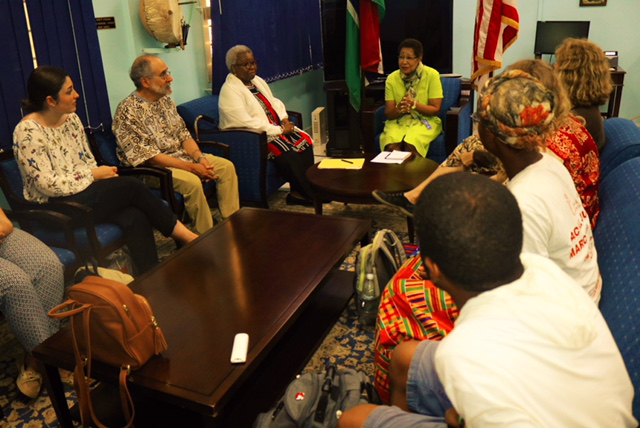 During their first week abroad, students visited the World Health Organization, the Medical Research Council, Royal Victoria teaching hospital in Banjul, the National Nutrition Agency, and more. They also spent time with Peace Corps volunteers, and this yearthey also met U.S. Ambassador Patricia Alsup, who spoke about a life in public service and international affairs.
During their first week abroad, students visited the World Health Organization, the Medical Research Council, Royal Victoria teaching hospital in Banjul, the National Nutrition Agency, and more. They also spent time with Peace Corps volunteers, and this yearthey also met U.S. Ambassador Patricia Alsup, who spoke about a life in public service and international affairs.
“We learned firsthand from the people who are not only directors, but also the people who are on the ground, the actual nurses and doctors and other caregivers,” says Alessio. “We met physical therapists. We met public health officials that are collecting data to track diseases. And the midwifes, birth attendants, [and] all the people who deliver babies in the middle of the night in remote villages because there is not a doctor in 100 miles.”
During the second week, students completed an immersive internship at either the Bundung Maternal and Child Health Hospital or the St. John’s School for the Deaf.
Those who worked with the deaf children prepared by first learning Mandinka sign language through a series of videos created by Megan Gross, a Miami clinical faculty, and her students from the university’s speech pathology and audiology department.
Over at the Bounding hospital students, assisted with health screenings, vaccinations, vitamin supplements, and health education presentations to pregnant women.
Throughout the week, students learn how, in situations where resources are scarce, health professionals and patients work together to provide the best care they can. Students quickly become aware of how surprisingly healthy and happy Gambian people are, despite having a fraction of the health resources they are accustomed to back home.
Serious. Welcoming. Inspiring.
“This program really struck me because it seemed like a more service-oriented study abroad,” says Emilio Bloch, a Miami student majoring in public health and biology. “And it just struck me as one that was more serious. It dealt with subjects that I was more concerned with, about nutrition and poverty, and things that afflicted developing countries.”
And they were cautioned about what they might experience before leaving.
“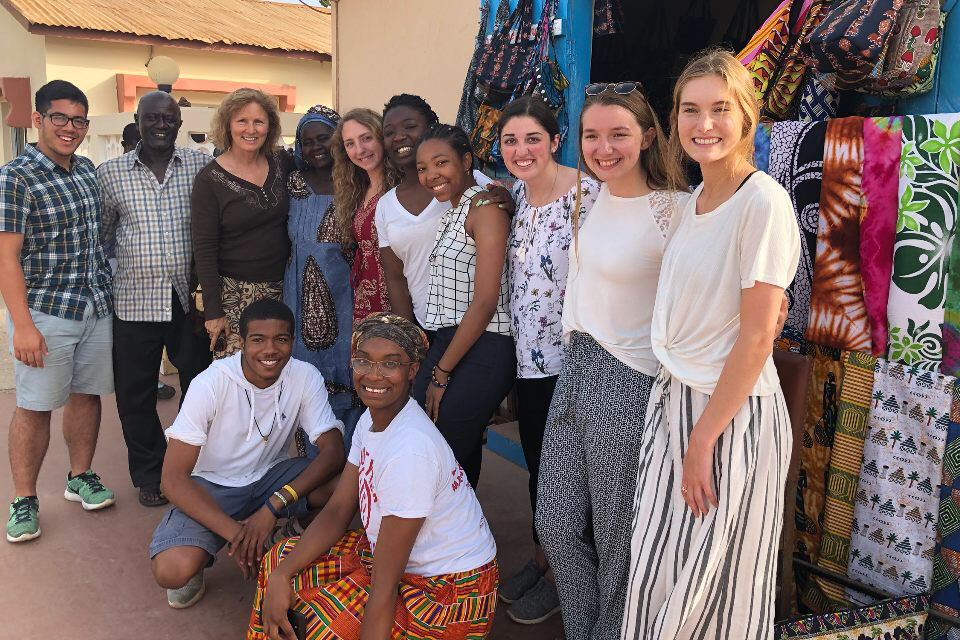 Dr. Alessio mentioned, a lot of times, this isn’t going to be like your usual study abroad,” Bloch says. Their hotel might lose power at any time, she explained. Why potentially contaminated water would necessitate various precautions. And how some students might find certain situations disturbing.
Dr. Alessio mentioned, a lot of times, this isn’t going to be like your usual study abroad,” Bloch says. Their hotel might lose power at any time, she explained. Why potentially contaminated water would necessitate various precautions. And how some students might find certain situations disturbing.
These are among the realities that many Gambians face every day. But even so, it does little to diminish their cheerful spirit. The Gambia is recognized as the “smiling coast of West Africa” and its peoples are internationally known for being exceptionally hospitable, genuinely joyful, welcoming, and warm.
During the days in between their site visits and the internships that followed, the students were also openly welcomed by the rural village of Kaiaf, where they found opportunities to interact with the local children, who were curious about their new friends and in need of aid.
“I want to go into physical therapy,” says Miami student and kinesiology major Mace Adams. “And there were some boys who got hurt playing soccer down there. So we went through the process of bandaging them and helping them. It was like on the spot physical therapy. It made me see a clearer picture of what I wanted to do. This trip helped me figure out that this is for certain what I want to do.”
For Emily Krile, the experience was equally impactful, and as a double kinesiology and family science major, she found it to be an enlightening blend of both.
“We learned more of the kinesiology stuff in the hospitals, and we also met all these women [who] talked about how the family systems worked there,” says Krile. “We were going into places where families were such an important thing. The majority of the people are living off of less than one U.S. dollar a day. Yet, they are carrying themselves with pride, and smiling, and they have these amazing relationships.
“It really opens your eyes to what’s important,” she says.

